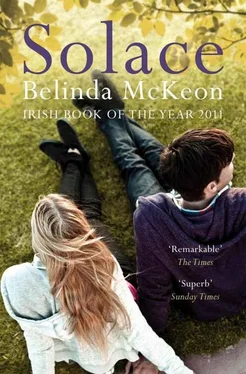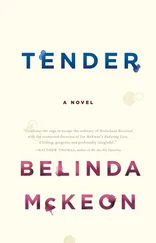‘Fine,’ Joanne said, and clicked into her email window. She had no new mail. She clicked out again and into one of the websites she kept open, but hidden, on her screen for much of the day; she knew Mona did the same. On a good day, Joanne only ever dipped into the virtuous sites — the newspapers, the things it was not so bad to be caught on by Eoin or Imelda, since you could be looking up court reports or precedent cases — but today was not turning out to be a good day, and she let herself fall into a rabbit hole to numb the brain: news items on celebrities, photographs of them walking in the street with their boyfriends or girlfriends or babies, links that led to more photographs, more snatches of gossip, to reader comments that were, more often than not, defamatory. Maybe, if Eoin or Imelda walked past, she could say she was researching Internet litigation. Eoin might buy it, but Imelda would know a gossip website when she saw one.
But Eoin was in court, and Imelda was staying safely in her office, and Mona was absorbed in the work she had to get finished before lunch. And so Joanne clicked on, and found out what was happening in the world. A teenage film star was pregnant. A model had been filmed taking cocaine. Mel Gibson had gone apeshit and said something anti-Semitic to a police officer. Paris Hilton had been spotted with her dog. It was junk. It was mindless. And when next she glanced at the clock it was almost lunchtime.
It never ceased to amaze her how easily and rapidly time seeped away when she went online. She opened the Lefroy transcript and looked at the last notation she had made. She stared at it, struggling to place herself back inside its world. Check? her own handwriting read, in block capitals. No arrow, no word circled, nothing to make clear what needed to be checked, and how, and why. She read the paragraph again. Paddy Glackin, the barrister for the plaintiff, was setting out the grievances of his client. Mrs Lefroy had sent her son to the very best schools. Mrs Lefroy had supported him through his years in college. Mrs Lefroy had paid for his master’s, the master’s he had never finished, and when he had gone into journalism, she had supported him then, too, making sure there was money in his bank account, making sure her son had the means to live the lifestyle he wanted to be seen to live. She had paid for the mews house to be painted and decorated, so that he and his friends would be comfortable there. She had bought him his first car. She had never been anything but supportive of her son, Glackin went on, even when he had broken her heart by moving to London. And when she had signed over the lease of the mews on his return to Dublin, she had done so in good faith, in the belief that he needed a home, that he had tax difficulties, that he was under pressure. And because Mrs Lefroy wanted her son to have a place of his own, because she did not want to see him suffer, she had signed the deeds transferring the property to him, and very soon afterwards, said Glackin, she had discovered what kind of a son she truly had. She had had her eyes opened, said Glackin, to the true nature of their bond.
Joanne rolled her eyes. Glackin was fond of his melodrama. She skimmed the passage again and again, and still she could not see anything she needed to check; still she could not spot the detail about which, on a previous read, she had written a note to herself. She looked back to the previous page. It was more of the same; Glackin setting out in agonized detail the depth of the son’s betrayal. How lonely the old woman was. How badly she had been let down. How she had lost her husband so many years ago, and was no longer in touch with her daughter. ‘And now this, Judge,’ Paddy Glackin had said. ‘And now this.’
She stopped. She read the paragraph again. She opened the folder of case notes and searched through the very first details they had gathered from Rupert. He was one of two children, he’d told Eoin; his sister, Antonia, had moved to New York many years ago. He had said nothing else about her; had Eoin asked him nothing else about her? Apparently not. And all through the court transcripts Joanne had read nothing, until now, of a daughter; there had been no mention of another child at all.
Joanne looked across the room. Mona was gazing at her computer screen with an absorption Joanne recognized; it was now her turn in the rabbit hole, clicking and staring her way through the links.
‘Hey,’ Joanne said, and Mona turned her head in surprise.
‘What?’ she said.
‘What’s the story with the daughter?’
Mona looked blank, then wary. ‘What daughter?’ she said slowly.
‘Mel bloody Gibson’s daughter — whose daughter do you think I’m talking about?’
‘I don’t know,’ Mona said, clicking hurriedly into a Word file.
‘The Lefroy daughter,’ Joanne said impatiently. ‘There’s a daughter. In the notes from the opening consultation.’
‘Oh,’ said Mona, her expression breaking into bright relief. ‘The sister. Oh, yeah.’
‘Antonia.’
‘Yeah, Antonia.’ Mona said. ‘Why? What about her?’
‘What about her?’ Joanne almost shouted. ‘What became of her? There’s not even one other mention of her in the case notes.’
Mona shrugged. ‘I guess she’s not important.’
‘Of course she’s important,’ Joanne said. ‘How can we expect to know the whole story about a case involving two members of the same family if we don’t find out everything we can about that family?’
‘Oh, for God’s sake, we don’t need to know anything more,’ Mona said, turning back to clatter at her keyboard. ‘We don’t need help, remember. Rupert is the one who’s clearly in the right. Eoin’s said it over and over again. Our case is as good as won.’
‘But we should have looked into the daughter. If the other side haven’t brought her up, hasn’t made something of her, there must be some reason for that. Mustn’t there?’
‘Don’t go making work for us,’ Mona said, in a warning tone.
And then Imelda’s door opened, and Imelda stepped into the room. She glanced at Mona — glanced down to where Mona’s feet were hidden by her desk — and looked to Joanne with a frown. ‘I was sure I told you to look into that sister of Rupert’s several weeks ago,’ she said, her eyes on the file open in front of Joanne. ‘Is that not the case?’
‘No,’ Joanne said nervously, and she heard Mona exhale between her teeth.
‘Well, my mistake,’ Imelda said, handing her the phone. ‘Get on with it.’
‘It’s six in the morning in New York,’ Joanne said.
‘Ring her during lunchtime, then,’ Imelda said. ‘You don’t have anywhere you need to be, do you?’
*
Antonia Lefroy picked up on the second ring. It was still early in New York, but she did not sound wary as she said hello, and neither did she sound as though she had just been woken. She sounded confident, capable, used to dealing with interruptions.
‘Ms Lefroy?’ Joanne said, and heard in her own tone the very nervousness and uncertainty she had expected in the other woman’s.
‘This is she.’
‘My name is Joanne Lynch. I’m calling from Brennan and Mullooly Solicitors, in Dublin.’
‘Hold on, please.’
There was a pause. Joanne heard a quick solid noise, like the movement of an object, or the sound of a door closing. When Antonia came back on the line her breath was close to the mouthpiece, and it came out in a long sigh. She was expecting bad news, Joanne realized. Who could receive a call from a solicitors’ office in another country and not expect bad news?
‘I don’t want to worry you, Ms Lefroy,’ she said. ‘Nothing has happened. Nothing is wrong.’
‘I’ll be the judge of that, I think,’ Antonia said tightly. ‘This is to do with my mother and my brother, I suppose?’
Читать дальше












